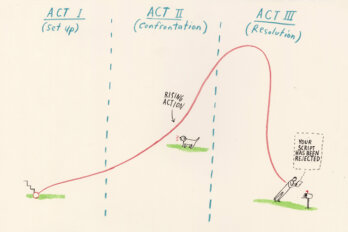Send us a letter, email, or tweet, or post on our Facebook page.
Kicked to the CERB
The Canada Revenue Agency bureaucracy highlighted in Ken Babstock’s “When Death Is Preferable to Taxes” (May) doesn’t affect only writers and creatives. As sex workers, my peers and I have encountered endless CRA wrinkles since the start of the pandemic. Shifting qualifications, along with the Canada Recovery Benefit’s requirement that applicants provide proof of past employment, have left us in the lurch. For Babstock, the CRA’s failures seem to entail improper administration of policy—for sex workers, these failures are more holistic. Due to a dearth of “legitimate” employment, a primarily cash-based income, and the reticence of many tax professionals to offer us services, my colleagues and I have experienced a lack of support from these programs. There are fundamental inequities in how different forms of labour are legislated, and they come with grave economic implications.
Sloane Saeed
Montreal, QC
By chronicling one man’s struggle to settle the record on his monthly assistance payments, Babstock points to broader problems with the Canada Emergency Response Benefit (CERB) and the CRA. In the months following CERB’s rollout, myriad problems were reported, including unclear official communications and subsequent edits to the wording of eligibility guidelines. It is perfectly understandable for an initiative that paid out over $74 billion to encounter some hiccups, but punitive responses from the CRA risk eroding the goodwill established by CERB in the first place. As we continue to recover from this pandemic and its economic fallouts, policy makers would do well to give Canadians the benefit of the doubt and think twice before demanding repayment.
Duncan Cooper
Toronto, ON
Clean Break
I agree with Angela V. Carter and Imre Szeman’s explanations, in “Ask an Oil Expert” (May), of why continued oil production is energy inefficient, financially risky, and ecologically disastrous. However, I found that they oversimplified how easy a transition to clean energy would be. TD recently estimated that up to 450,000 jobs—or three-quarters of oil-and-gas workers—are at risk from the energy transition. While much of this can be offset by work in clean-energy industries, these new jobs will be expected to offer stable employment, similar local tax revenue, and comparable benefits and union representation, none of which can be assumed. Of course, for Canada to continue producing emissions at such high rates is unacceptable. But being cognizant of the challenges an energy transition entails will only help accelerate cohesive action.
Calvin Trottier-Chi
Montreal, QC
Talk isn’t Cheap
Reading Hannah Seo’s article “Blah Blah Blah: The Lack of Small Talk Is Breaking Our Brains,” I felt lucky to live in a multiple-unit dwelling where I can see people in the halls and lobby. One of my neighbours has no internet access and therefore does not receive regular updates on vaccine distribution. Luckily, while making small talk, I happened to mention to him that I had just been vaccinated. He asked how he could find out more, so I copied out the toll-free number he could call to get more information. My partner now tells me that this man has an appointment for a vaccine. Small talk isn’t always so small after all.
Stephen Rees
Vancouver, BC
Send us a letter, email, or Tweet, or post on our Facebook page.
411 Richmond Street East, Suite B15
Toronto, Ontario, Canada M5A 3S5





